DFDS Decarbonised Solutions

Simple. Certified.
Transparent reductions within our network
Easy to fit into your logistics setup
Report Scope 3 CO2e reductions
Certified emissions reductions
What are the benefits of the certificate?
The certificate guarantees that the emission reductions are real and unique. When reductions are achieved using vessels with biofuel or trucks with electricity, the process is independently reviewed by our auditor, according to ISAE 3410 standards.
The reductions are made within our Scope 1 emissions and can be included in your Scope 3 reporting. This means our reductions also count towards your efforts to reach net zero.
Each reduction, documented with a certificate and statement, is stored in our CO2e reduction bank. Once issued as a certificate, the reduction is permanently removed from the CO2e bank.
We follow the GLEC Framework to calculate and report all our transport emissions, which also serves as the basis for our reduction calculations.
Biofuel and electric trucks drive our CO2e reductions
Our carbon emission reductions are generated in our own transport network via insetting – for example by using biofuel in our vessels and by switching to eTrucks on road.
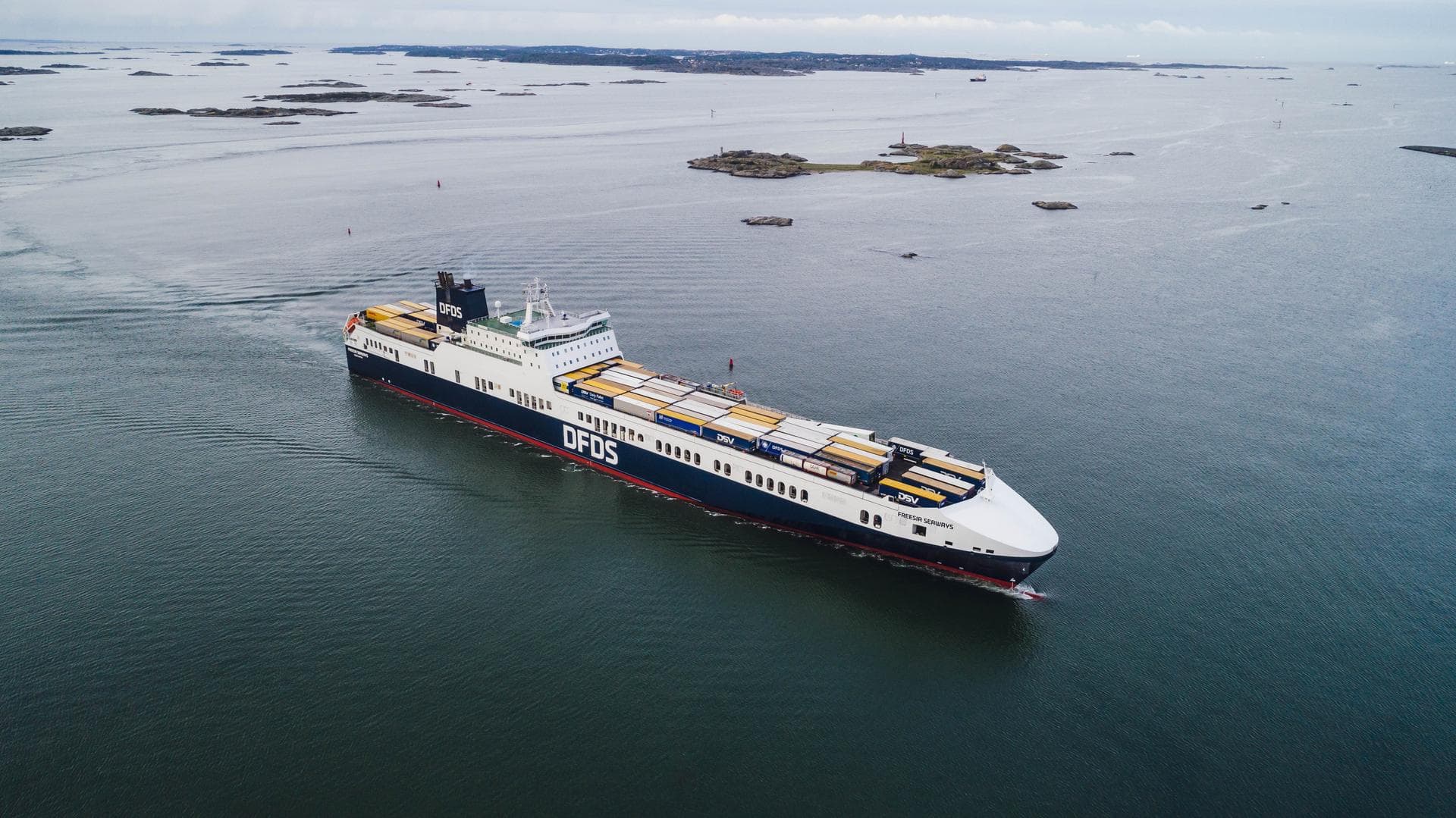
Transitioning vessels and trucks
Today, more of our fleet can operate on cleaner fuels, and we plan to adopt even more sustainable fuel options as they become available.
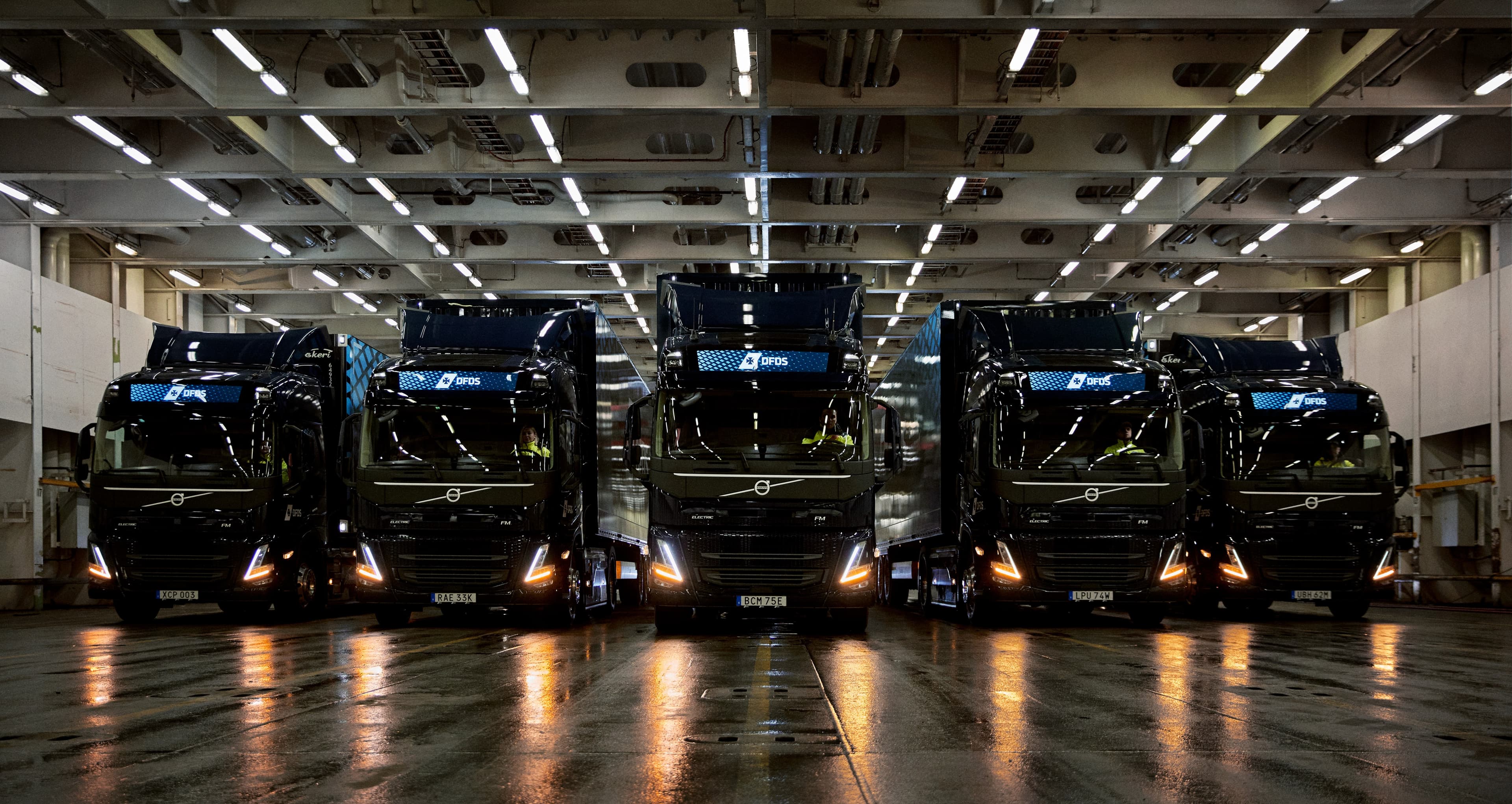
More than 125 eTrucks with more to come
Electrification plays a crucial role in our efforts to reduce our carbon footprint. Currently, electric trucks are operating in our European network.
How do DFDS Decarbonised Solutions work?
Achieving net zero requires collective efforts from all of us. Our solutions are designed to accelerate this transition: when you invest in emissions reduction, the resulting revenues are reinvested in decarbonisation technologies.
How the system works in practice for your company:
- You specify the amount of CO2e savings you aim to achieve.
- Together, we determine whether the reductions can be made directly in your transportation flow, or indirectly through the DFDS network.
- We make, measure, verify, and store CO2e emissions reductions from our transportation network.
- You receive an annual certificate specifying the number of tonnes of CO2e reduced in your supply chain.
- You report these reductions as part of your Scope 3 emissions.
How can we help you?
How can we help you?
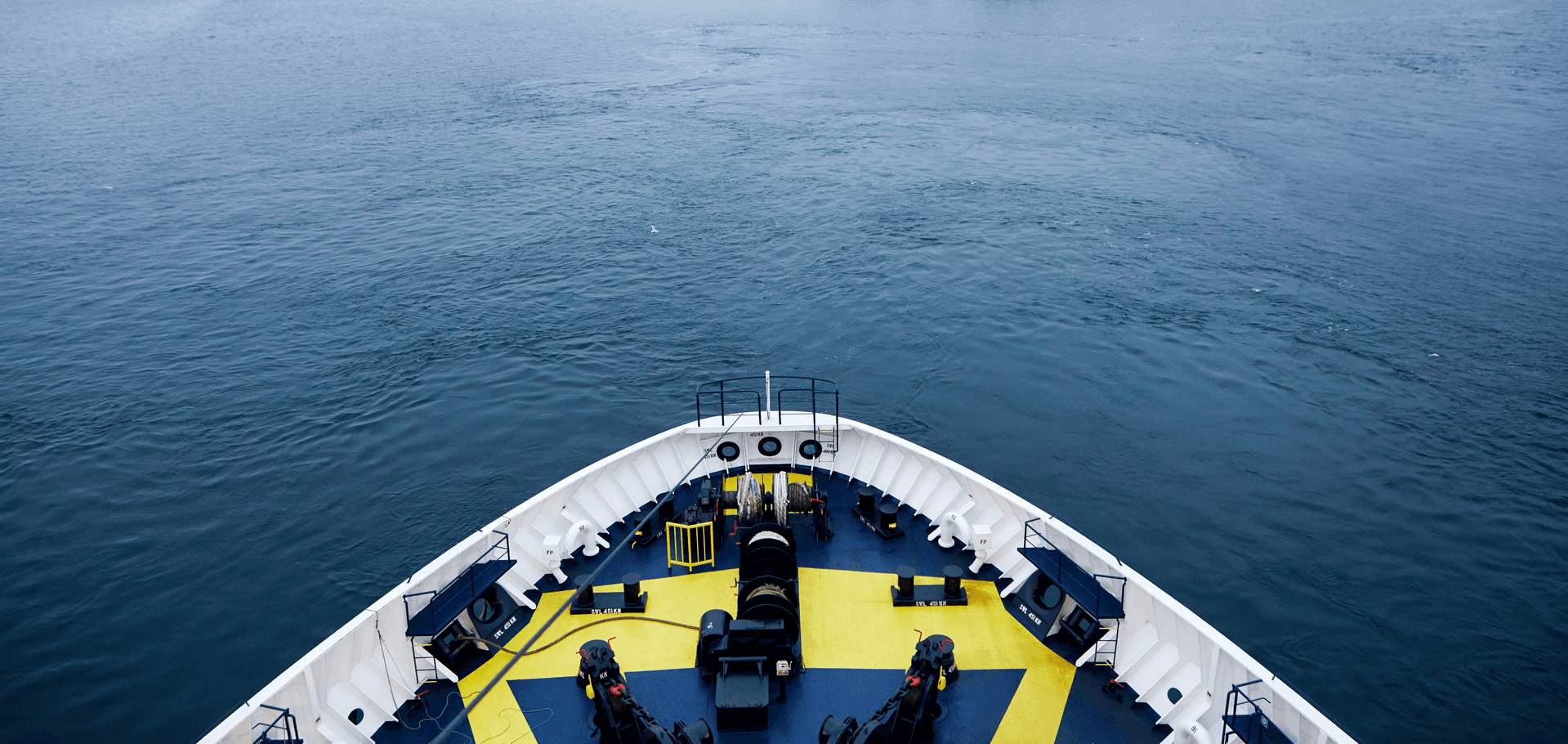
Reductions by 2030
At DFDS, we are committed to a 45% (at sea) and a 75% (on road) emissions intensity reduction by 2030. Learn more about our climate action plan and sustainability targets.
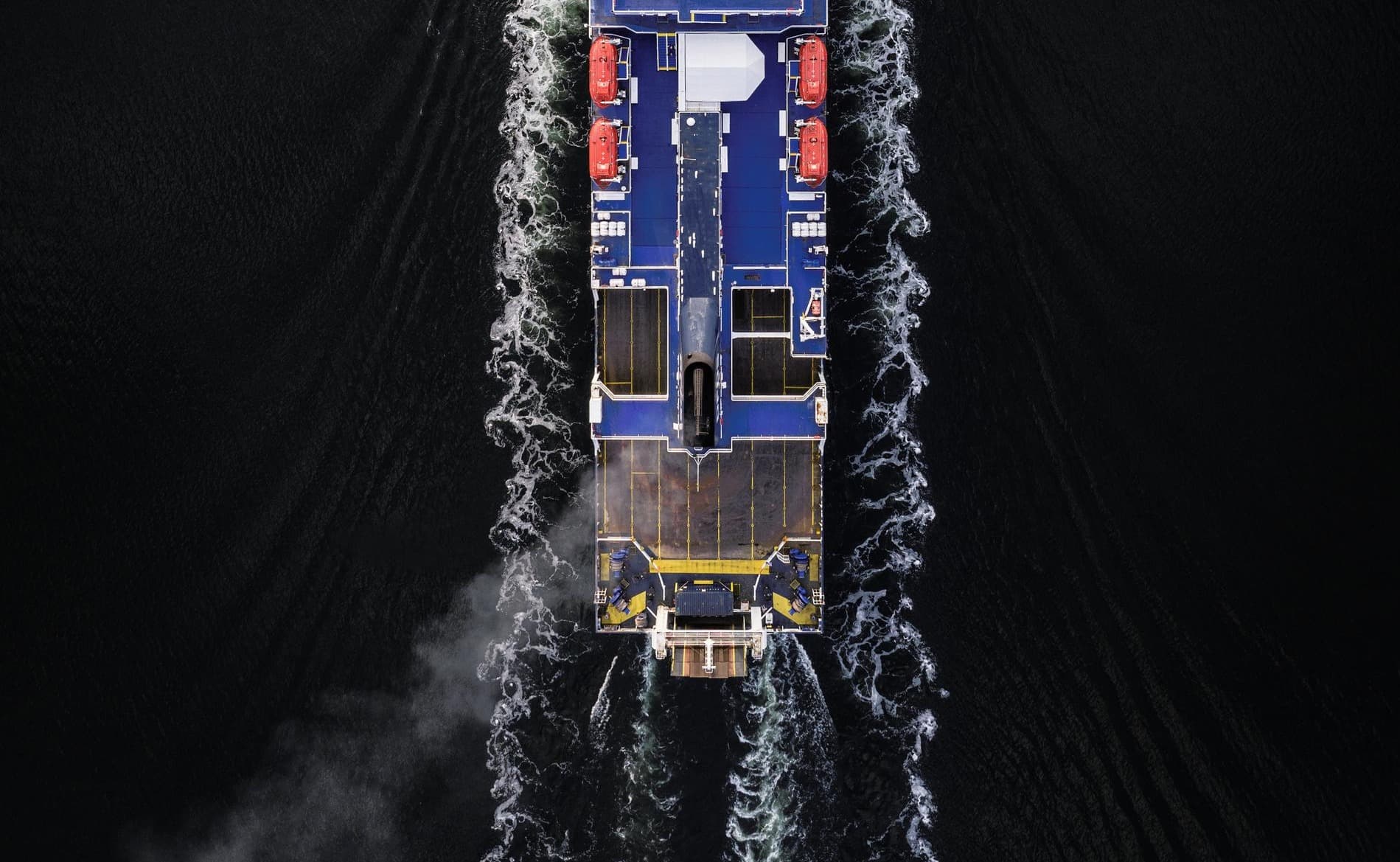
Sustainable fuels
We are engaged in various projects aimed at replacing fossil fuels with more sustainable alternatives to reduce carbon emissions in freight and logistics.
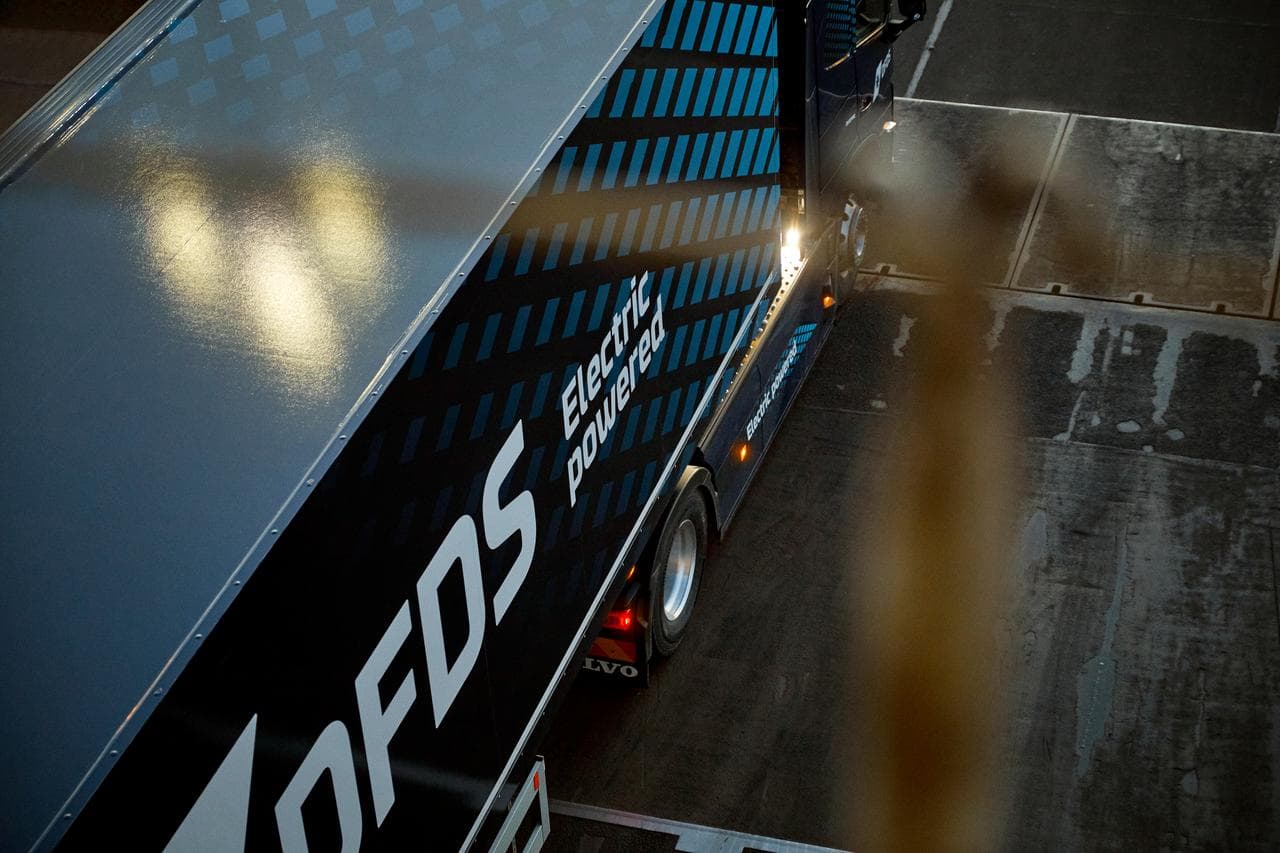
eMobility moves us
Pioneering eMobility helps us to decarbonise logistics. Today, more than 125 electric trucks drive us towards our emission reduction targets for 2030.